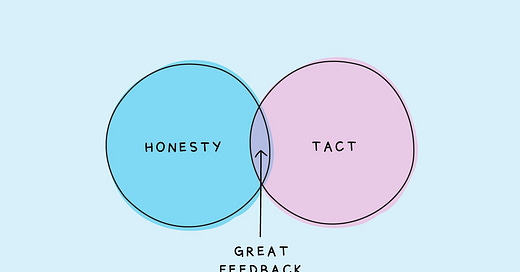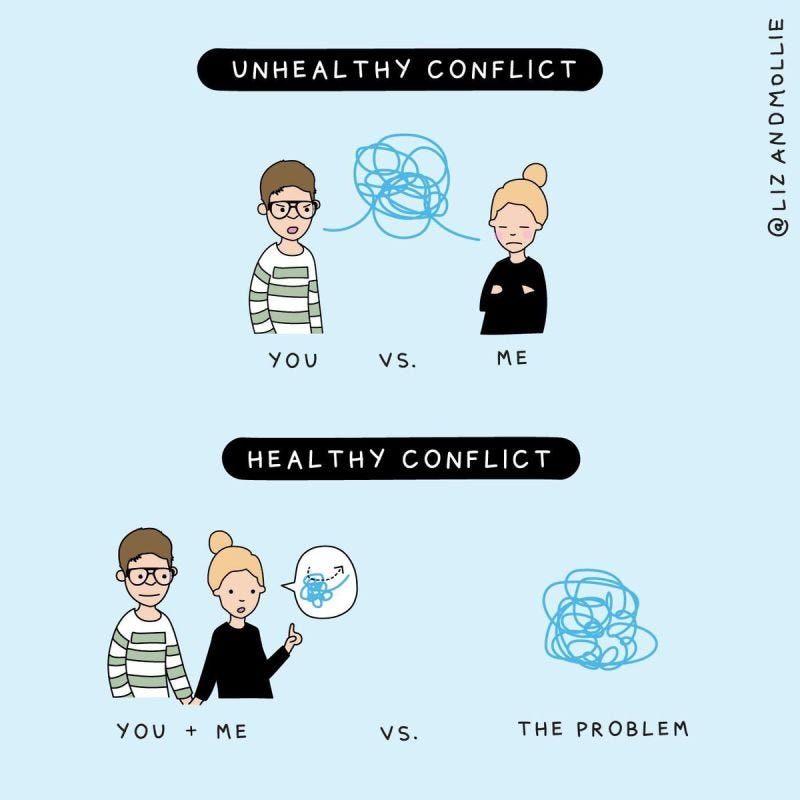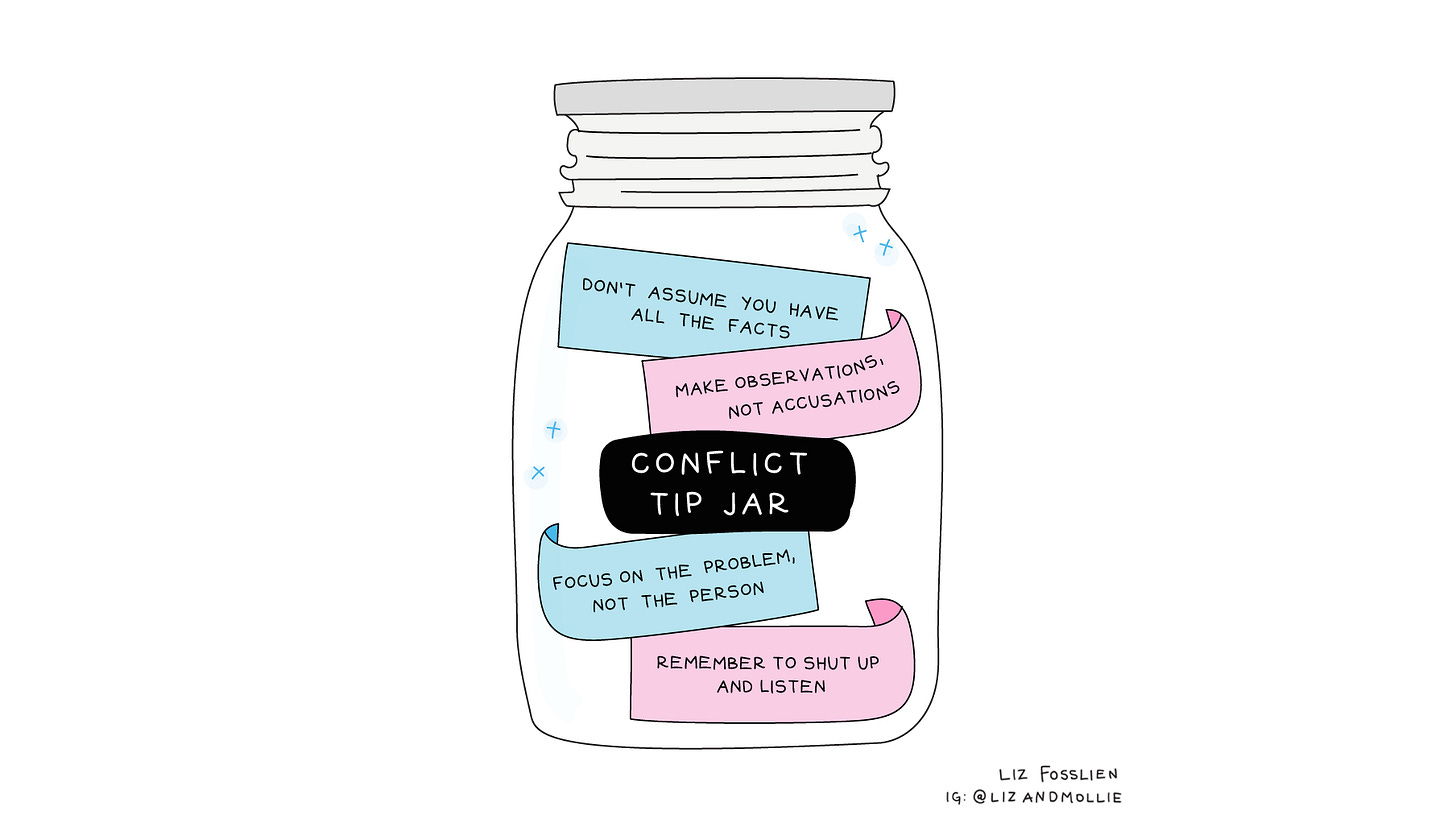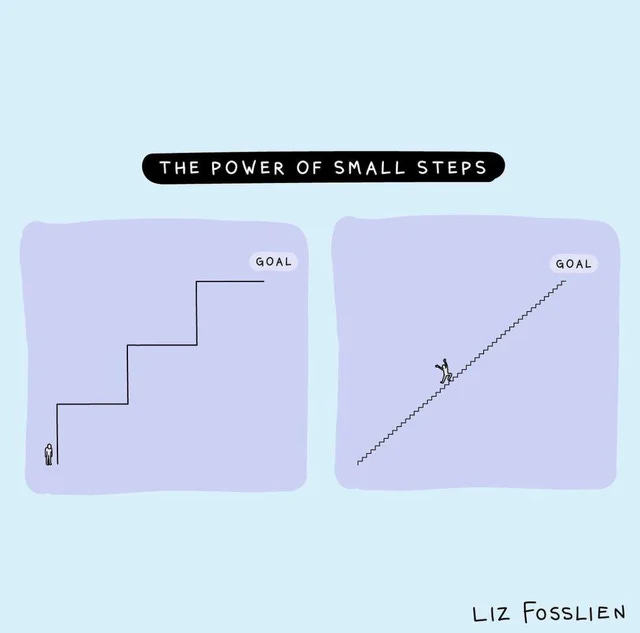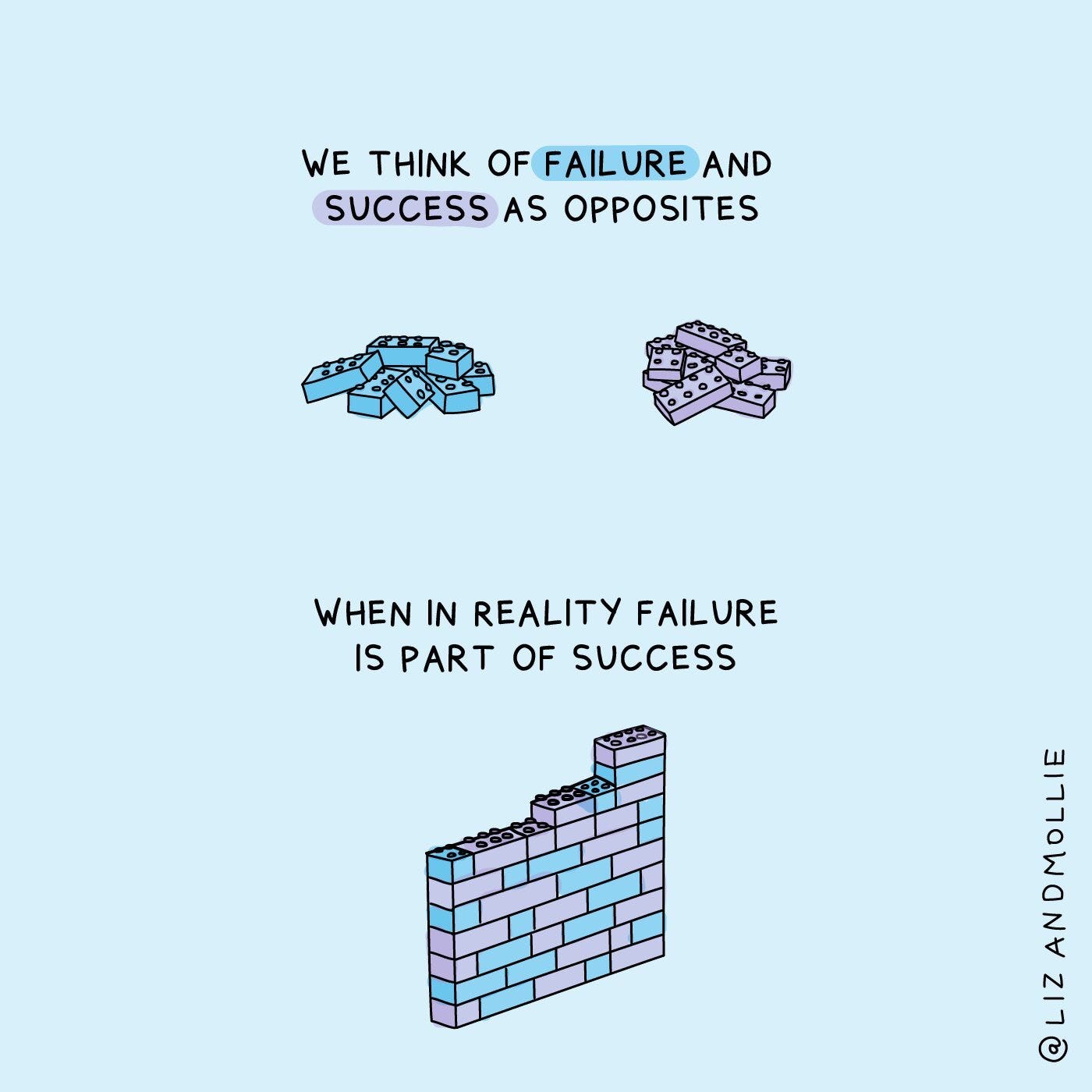New ways of working aren’t just about getting stuff done—they’re a shift toward building better relationships and making work more rewarding. Healthy meetings, feedback that doesn’t feel like getting grilled, and environments that feel safe for risk-taking. All of these make work something more than just a wage. The wonderful Liz and Mollie have captured these ideas beautifully in their illustrations.
Keep scrolling to see what psychological safety doesn’t look like, how to navigate conflict with tact, and why small experiments (and yes, the occasional stumble) are key to keeping our ways of working alive and evolving.
Healthy Meetings & Effective Teams
Meetings: that timeless grind that tops the list of workplace irritants. The good news? It doesn’t have to be this way. High-performing teams tackle this by using meeting structures that ensure that everyone’s voice is heard, not just the loudest or the usual suspects. Distributing talk time might sound simple, but it’s a game-changer.
Psychological Safety
Psychological safety is the confidence that you can speak up, ask questions, make mistakes, and throw out fresh ideas without fearing judgment. Imagine a team where you feel free to experiment without worrying about someone side-eyeing your every word. That’s psychological safety, and it’s the real foundation for innovation and high-performing teams.
Feedback
Feedback is fuel for growth, but only when it’s done right. Honest, regular feedback offers a shortcut to better collaboration and stronger teams. Think of it as real-time intel on the impact you’re having—and a surefire path to personal growth. The more we know about how we affect each other, the better we get at collaborating.
Conflict
Conflict can be a significant factor in inhibiting organisations, and yet it’s unavoidable. So instead of side-stepping it, let’s get better at it. A clear “conflict engagement process” can be a lifesaver, providing guidelines on how to deal with disagreements constructively. Handle conflict well, and it can shift from a source of tension to a space for growth.
Small Steps, Experiments & Failure
Breaking free from old-school ways of working isn’t a one-time leap; it’s a series of small steps, experiments, and yes—some failures along the way. Start small, find what works, and keep adjusting. And know that every step forward is likely to come with a few bumps. But that’s the point: the moment we stop experimenting, we stop moving forward.
Working in progressive ways means embracing change, stepping into the unknown, and valuing progress over perfection. There’s no universal formula and it certainly isn’t easy, but with the right mindset and a few core principles, we can help our teams become more resilient, supportive, and effective. Hats off again to Liz and Mollie for visuals that push us to rethink, reflect, and reimagine.
🙏 Please support this newsletter by sharing it with your colleagues.
👉 The New Ways of Working Newsletter is brought to you by WorkPulse.

